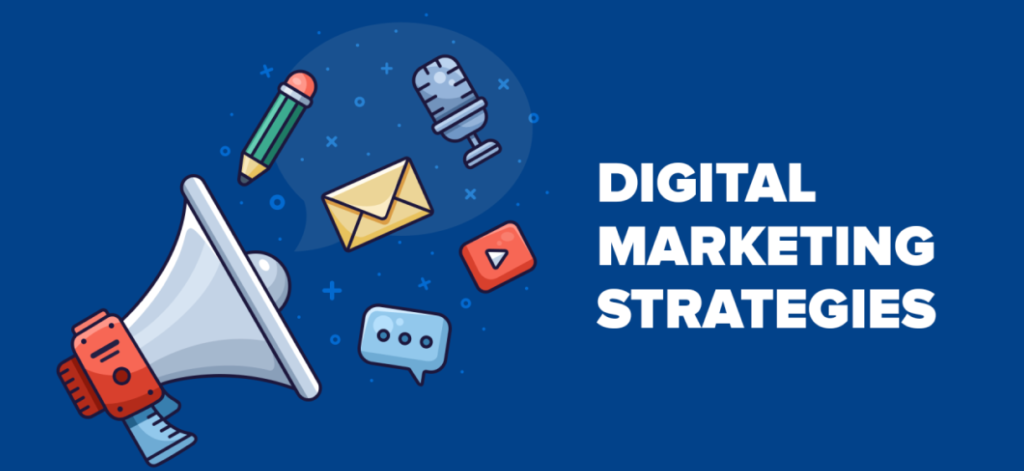Introduction
In today’s digital-first world, businesses rely heavily on digital marketing to connect with their target audience, build brand awareness, and drive sales. As the industry evolves, digital marketers must continuously adapt and refine their skill sets to stay ahead of the competition. Whether you are an aspiring marketer or a seasoned professional, mastering these 10 essential skills will give you a competitive edge in 2024 and beyond.
1. Search Engine Optimization (SEO)
SEO is the backbone of digital marketing. Without proper optimization, even the most compelling content will fail to reach its intended audience. Digital marketers must understand both on-page and off-page SEO strategies, including keyword research, link building, and technical SEO.
Key Aspects of SEO:
- Keyword research and intent analysis
- On-page optimization (meta tags, headers, internal linking, etc.)
- Off-page optimization (backlinks, guest blogging, social signals)
- Technical SEO (site speed, mobile optimization, structured data)
- Staying updated with Google algorithm changes
2. Content Marketing
Content is king, and effective content marketing can help businesses establish authority and trust. Marketers must be skilled in creating valuable, engaging, and shareable content tailored to their audience.
Essential Content Marketing Skills:
- Writing compelling blog posts, articles, and guides
- Developing content strategies that align with business goals
- Utilizing various content formats (videos, infographics, podcasts)
- Repurposing content across multiple platforms
- Understanding audience engagement metrics
3. Social Media Marketing
Social media platforms are crucial for brand awareness, engagement, and lead generation. A digital marketer must know how to create impactful campaigns tailored to different platforms.
Social Media Strategies:
- Developing platform-specific content strategies (Facebook, Instagram, LinkedIn, Twitter, TikTok)
- Running paid social media advertising campaigns
- Understanding social media algorithms and trends
- Engaging with audiences and managing brand reputation
- Tracking performance through analytics and A/B testing
4. Pay-Per-Click Advertising (PPC)
PPC campaigns help businesses drive targeted traffic quickly. Digital marketers should be proficient in managing PPC campaigns on platforms like Google Ads and social media networks.
PPC Essentials:
- Conducting keyword research for paid ads
- Writing compelling ad copy
- Managing bidding strategies and budgets
- Optimizing landing pages for conversions
- Analyzing PPC performance and adjusting strategies
5. Email Marketing
Despite the rise of social media, email marketing remains one of the most effective channels for customer engagement and retention.
Email Marketing Skills:
- Crafting personalized and high-converting email campaigns
- Segmenting audiences for targeted messaging
- A/B testing subject lines and email content
- Automating email sequences for lead nurturing
- Measuring open rates, click-through rates, and conversions
6. Data Analytics and Performance Tracking
Data-driven decision-making is critical for digital marketing success. Marketers need to analyze campaign performance and adjust strategies accordingly.
Key Analytics Tools and Skills:
- Google Analytics for website performance tracking
- Conversion tracking and attribution modeling
- Heatmaps and user behavior analysis
- A/B testing for optimizing campaigns
- Understanding key metrics (CTR, bounce rate, CPA, ROAS)
7. Conversion Rate Optimization (CRO)
Getting traffic is just the first step; converting visitors into leads or customers is the ultimate goal. CRO helps maximize the effectiveness of digital marketing efforts.
CRO Techniques:
- Improving website and landing page design
- Crafting persuasive calls-to-action (CTAs)
- Enhancing user experience (UX) and navigation
- Conducting A/B testing for design and content variations
- Using psychological triggers to influence decision-making
8. Marketing Automation & CRM Tools
Automation helps streamline repetitive tasks and improve efficiency, while Customer Relationship Management (CRM) tools help track and manage customer interactions.
Automation and CRM Skills:
- Using platforms like HubSpot, Salesforce, or Marketo
- Automating email sequences, lead nurturing, and retargeting
- Integrating CRM with marketing campaigns
- Personalizing customer journeys
- Analyzing customer data for better targeting
9. Video Marketing
Video content is more engaging and widely consumed than ever. Marketers must leverage video marketing to capture audience attention and drive engagement.
Video Marketing Strategies:
- Creating engaging short-form and long-form videos
- Understanding video SEO and metadata optimization
- Using video editing tools like Adobe Premiere Pro, Canva, or CapCut
- Running video ad campaigns on YouTube, Facebook, and Instagram
- Repurposing video content across multiple channels
10. Influencer and Affiliate Marketing
Collaborating with influencers and affiliates can help brands reach a broader audience and build credibility.
Influencer & Affiliate Marketing Skills:
- Identifying and partnering with the right influencers
- Negotiating contracts and campaign objectives
- Tracking affiliate performance and commission structures
- Creating engaging co-branded content
- Measuring ROI and effectiveness of partnerships
Conclusion
Digital marketing is an ever-evolving field that requires continuous learning and adaptation. Mastering these ten essential skills will equip you with the expertise needed to create effective campaigns, engage with audiences, and drive business growth. Whether you specialize in one area or become a well-rounded marketer, these skills will ensure your success in the digital world.

